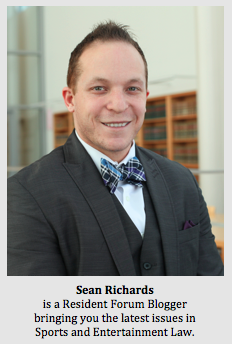There are currently 22 Major League level baseball players who hail from the island nation of Cuba. These players include Rookie of the Year Jos é Abreu (First Base, Chicago White Sox), and all-stars Yasiel Puig (Outfiel, Los Angeles Dodgers), Aroldis Chapman (Pitcher, Cincinnati Reds), Yoenis Céspedes (Outfield, Detroit Tigers), and many others. Their long journey to the Majors following defection from the communist Cuban government is well documented and, in many cases, provides for tremendous human interest stories.
The United States has had an embargo on Cuba for over 50 years. Thus, Cuban baseball players were formerly considered blocked foreign assets and were required to become “unblocked” by the Department of the Treasury’s Office of Foreign Assets Control (OFAC) before they were free to sign with a Major League club. Section 515.505(a)(2) of the Cuban Assets Control Regulations “unblocks any individual national of Cuba who has taken up permanent residence outside of Cuba, provided certain required documentation is obtained, and the individual is not a prohibited Cuban Government official or prohibited member of the Cuban Communist Party.” Some players have been granted permission by the Cuban Government to establish residency elsewhere and were able to do so within a few months, while others like Yasiel Puig had to be smuggled out of the Cuba by members of the Mexican Cartel. A player who met the Section 515.505(a)(2) requirements is automatically considered “unblocked” and is granted a “general license” from OFAC.
However, Major League Baseball’s policy, until early February, required a more “specific license” from OFAC for a Cuban player to be eligible to play in the United States, which can take up to 6 months to receive. When the Obama Administration announced in December 2014 that the United States would begin to ease the embargo on Cuba, OFAC issued a memorandum to the Office of the Commissioner of Major League Baseball, Major League clubs, and Cuban nationals awaiting the license stating that the office will no longer grant “specific licenses.” Instead, the simpler “general license” will be granted once a player has established “permanent residency outside of Cuba” thereby allowing a player to sign with a club quicker than previously thought. The decision from OFAC prompted Major League Baseball to also change its policies and now MLB allows clubs to sign Cuban players as soon as they are considered “unblocked” foreign assets.
Under the new Major League Baseball rules, a Cuban player who has satisfied the OFAC requirements would also be required to provide an additional sworn statement that reads in part:
“I have taken up permanent residence outside of Cuba. In addition, I hereby state that I do not intend to, nor would I be welcome to, return to Cuba. Further, I hereby state that I am not a prohibited official of the Government of Cuba … and am not a prohibited member of the Cuban Communist Party.”
Cuban nationals are still not free to travel to the United States or Puerto Rico, but they are free to travel to other countries. There have been Cuban-born players in Major League Baseball for over 100 years, but the publicity and demand surrounding Cuban talent is at an all-time high, prompting an increasing amount of pressure for players to defect. During a recent trip to Puerto Rico for the Caribbean Series, two players defected from the Cuban national team which led to a condemnation by the Cuban Baseball Federation and the Cuban Government of the “manifestations and hounding by groups organized from the United States and other countries to encourage the theft of athletes.”
The increase in talent from a new international market may prompt Major League Baseball to reevaluate its international spending limits when its collective bargaining agreement expires in 2016. Simply put, a club is allowed to spend a set amount of money each year on international amateur free agent signings depending on how that club finished in the previous years’ standings. Clubs that exceed their allotted amount are taxed by Major League Baseball upwards of 100%. Thus, when 19 year-old Cuban phenom Yoan Moncada was declared a free agent, many of the “smaller market” clubs were not even considered in the running for his services because they could not afford the $30-50 million contract he is likely to command in addition to the taxes his signing will bring. The increase in Cuban talent to Major League Baseball moving forward will not only place the spotlight on the geopolitical relationship between Cuba and the United States, but will also be a hotly debated source of contention between the Players Association and owners as the two groups begin labor negotiations in 2015-16.
Published February 17, 2015
